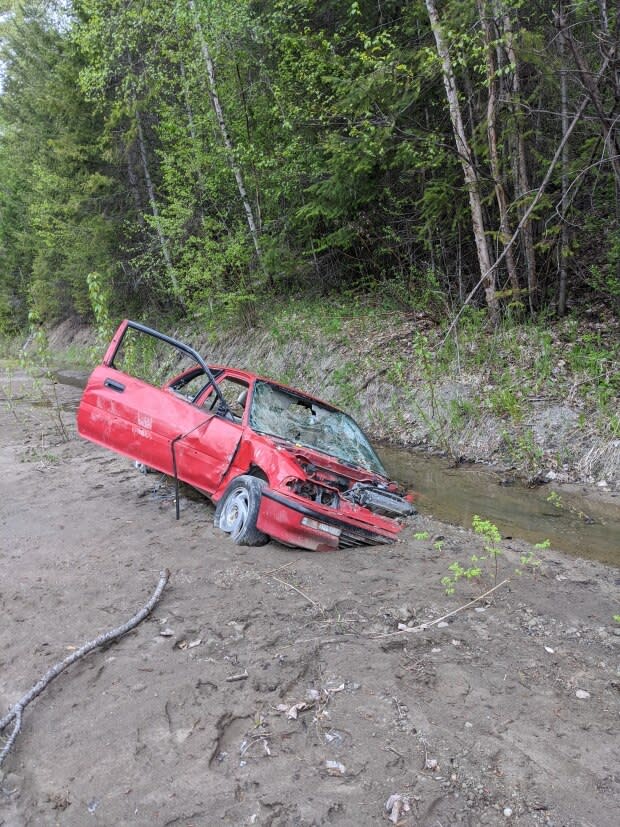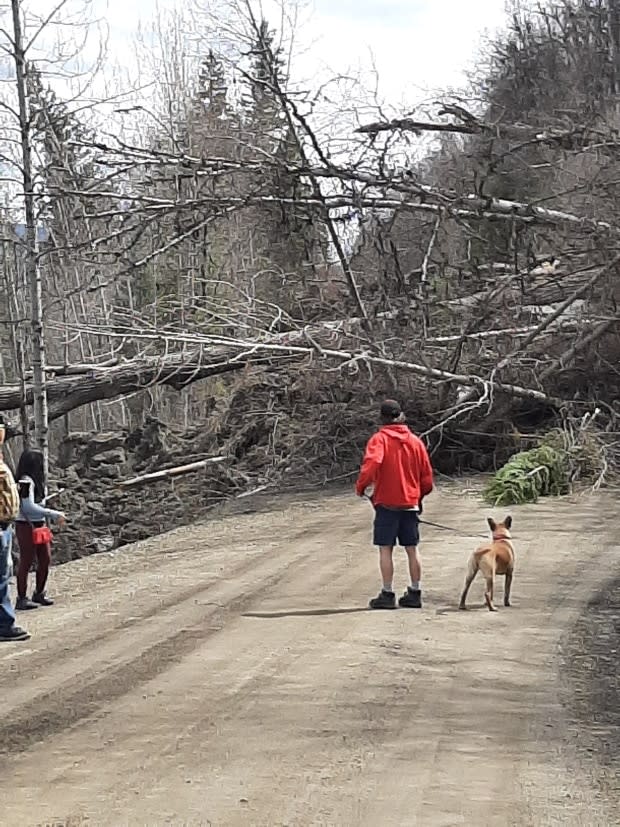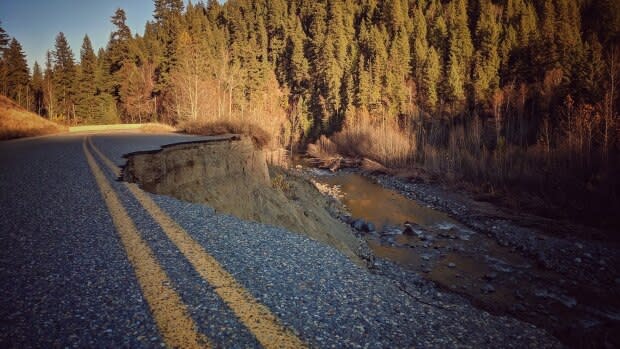Road to nowhere: Rural drivers stopped dead by slides, washouts in the Cariboo
Washouts, mudslides and landslides have closed several back roads in the Quesnel area this spring.
The damage has forced drivers to turn back on routes where roads buckled or were blocked by debris. But some local people, like Steve Anderson, have hiked in to see the damage for themselves.
"Things are still moving, things are still shifting," said Anderson, after he clambered over fallen trees and climbed up steep slopes along West Fraser Road, south of Quesnel.
After hearing about high water and boulders bashing a bridge, he wanted to check on the creek below, where he'd learned to swim as a boy.
One of Anderson's ancestors led the crew that built the bridge over the creek, and, according to family lore, he'd insisted on the sturdiest bridge pilings, even though they were more expensive.
Now, years later, the bridge was still standing. But the road leading to the bridge had vanished.
"The road is in the creek somewhere," said Anderson, a 24-year-old heavy duty mechanic apprentice, who said he was amazed by the damage.
"It's like the whole mountain came down," he said. "It's sad to see how much the earth had actually moved."
'The entire mountainside moved'

This recent road collapse Anderson witnessed was just the latest in a series of problems on West Fraser Road. In 2018, washouts took out several parts of the road, leaving blacktop hanging in mid-air in one section. Much of the route has been closed to traffic ever since, forcing about 250 people to take a lengthy detour that adds hours to their commute and the school bus route.

The Ministry of Transportation is now building an alternative route for West Fraser Road in a different location. It will cost more than $100 million and take several years.

Elsewhere in the Quesnel area, several rural roads have recently been closed indefinitely, including Quesnel Hydraulic Road, blocked by a landslide that brought down large trees. The official detour is a forestry road bordered by slash, a route so rough and muddy, it's popular with ATV riders.
'A creek can take out an entire road'

Quesnel Mayor Bob Simpson says there are no easy answers when it comes to "problematic" roads.
"As you see, a creek can take out the entire road. There's no bulldozer that's going to fix that," said Simpson.
Quesnel's mayor says most of the region's roads were built along the banks of creeks and rivers. When water rises, the banks erode and give way, he said.
Simpson says trees killed by wildfires and pine beetles mean more surface water is running off, especially during heavy rains.
The Ministry of Transportation and Infrastructure said a high snowpack, long winter and the rapid spring snowmelt also affected the high water levels in the Cariboo region.
The result is reshaping some local landscapes, but the damage is not confined to the Cariboo.
'Hotbed for landslides'
"B.C. is a hotbed for landslides," said Brett Gilley, a senior instructor in the department of earth, ocean and atmospheric sciences at the University of British Columbia, who has taught geology for 20 years.
"The slopes, the high rainfall, the multiple triggers, there are lots of landslides.," said Gilley. "We then complicate things by building roads."

Quesnel's mayor says tough decisions need to be made about whether damaged roads are fixed, decommissioned or rebuilt in more stable locations.
"Do you really want to go back and invest in a road that has already blown out multiple times? Just to have it blown out again?" Simpson asked.
"Those are things that people are not interested in," he said. "They just want a road that they can drive on to get wherever they want to go."



